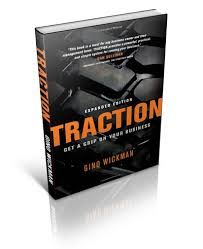 Most of us know that success requires that we spend, at least, some time working “on” our business instead of “in” our business. Yet, in practice, we find this piece of essential wisdom to be nothing more than a tired cliche’.
Most of us know that success requires that we spend, at least, some time working “on” our business instead of “in” our business. Yet, in practice, we find this piece of essential wisdom to be nothing more than a tired cliche’.
Having spent the bulk of my career studying funeral practitioners and all of my life studying myself, I think I know why. Spending time working “on” our business is less familiar than working “in” our business. In other words, we know how to work in our business better than we know how to work on our business. It’s easier to fall back into life long patterns. Quite frankly, being too busy provides a false sense of security and even progress. So, we fool ourselves into thinking we are making progress. But that uneasy feeling in our gut tells us differently.
I have found, at least for myself, that there are three ways to break this pattern and begin doing the increasingly necessary work of the business itself.
Commit to NOT being THERE: This means that you schedule a time in advance to being offsite with no phones or text or email. Actually, you can have all of those but your staff is under strict orders not to call you unless the building is on fire. Sometimes, I just go to the library or some other quiet place.
Don’t make it up: Working on your business means planning and planning means structure. Most of us don’t really know where to start working on our business. We tend to gravitate toward the things that worry us or irritate us. I truly believe that the reason we don’t work “on” our businesses is because we don’t know how and we have no model to emulate. I read a lot and, frankly, have been disappointed in most of the literature on this subject. Recently, however, I encountered a book that is the most practical blueprint for working on your business. It covers all of the critical elements but it goes beyond ideas by providing very strong processes and systems for moving your company forward. Get “Traction” by Gino Wickman
Don’t do it alone: The one thing I anticipate Funeral Directors resisting in Wickman’s book “Traction” is that he is all about accountability. And for those who need to work “on” their business accountability is the single most important element. That’s why I say “Too Busy To Succeed”. It is so easy to be pulled back into the whirlwind of the funeral business. Wickman’s system makes everyone accountable to everyone else. But I believe the leader needs to be accountable to peers. That means assembling a group of people who care enough to be tough with you and hold you accountable to focus and deadlines.
Short Term Study Group
If you feel it’s time you break the cycle of start and stop ideas, non – cooperative staff, endless unfinished projects and always feeling you might be behind the curve, I am organizing a SHORT-TERM study group to help my clients break through and gain the advantage of focused, disciplined strategies that hold people accountable.
I am a big fan of study groups. But, all too often, they degenerate into “clubs”. People forget what you committed to last time and there is no real accountability.
This study group will be short – term (3 – 5 years) because it will be focused on achieving the goals each member identifies. We will, as a group, implement the “Traction” processes and systems. We will meet electronically once a month to update each other, discuss issues and hold each other accountable. If you fall back into the “working in your business” pattern we will lift you up. If you stay there I will politely ask you to withdraw.
The reason it is short – term is that it is goal – specific. Once goals are realized it is time to disband. That does not mean that the group or individuals in the group can’t repurpose and establish new goals. But, if I am involved, it will not become a club.
If you really want to break out and think this might be a good pattern for you contact me at
alan@alancreedy.org












